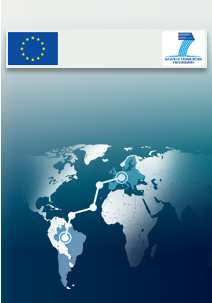
                 |
 INTRODUCTIONThe increasing reliance on imported diesel fuels, in addition to annual increases in the quantities of organic wastes are threats to the EU and Latin America. DIBANET (Development of Integrated Biomass Approaches Network) aims to combat these threats and help to eliminate diesel imports by developing novel technologies to produce sustainable diesel miscible biofuels (DMBs) from wastes and residues of Europe and Latin America. The 42 month, € 3.73m (L3.4 million) research project, coordinated by the University of Limerick in Ireland, builds on the key, complementary, strengths of European and Latin American researchers and industries to advance this field. This global network of experts and researcher includes partners from Europe (Denmark, Greece, Hungary, Ireland and UK) and Latin America (Brazil, Argentina and Chile). This enhancement of co-operation will ensure that the whole process, from feedstock to process residues, is engineered for maximum efficiency. DIBANET will lead the way for sustainable large scale biofuel production by 2020, while avoiding land use impacts and resolving the problems of increasing organic waste levels. DIBANET will improve the state of the art in the biorefining and pyrolysis of biomass in order to create sustainable second generation biofuels from wastes and residues that can be mixed with fossil diesel and used in a regular diesel engine, while complying with industry standards. Traditional first generation biofuels are made from food crops such as corn and wheat compete with food causing food-vs.-fuel issues. DIBANET will produce second generation biofuels from wastes and biomass residues which do not compete with food. In focusing on the use of wastes as feedstocks for biofuel production DIBANET will also provide sustainable and economical alternatives to landfill and incineration of wastes, both of which are inefficient and produce significant greenhouse gas emissions with little returns. Biochar, resulting from pyrolysis of the wastes and residues will be examined for use as a soil amender for enhanced biomass yields and carbon sequestration. This, excitingly, offers the potential for a carbon negative biofuel. DIBANET will also foster strong links between regions will be further enhanced by the establishment of scholarships for Latin American students; 2 large brokerage events to engage all stakeholders; and a summer school for knowledge transfer. DIBANET ensures that the outputs of the research are fully exploited to the maximum benefit of both regions, leading to a strong future relationship in trade and research. |
 |